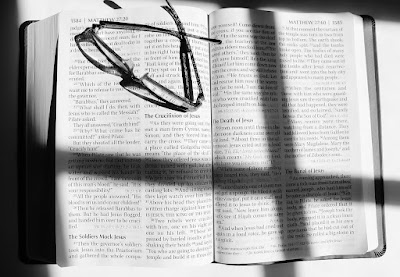This blog is an unexpected postscript to yesterday’s
post.
I was reading an article in a secular magazine where a man
was recounting his travels in Europe. In the middle of the article he commented,
“I’ve chosen to eventually pursue a medically assisted life exit.” (I had to
wonder why he was buying souvenirs on his trip!) His blasé attitude toward
death disturbed me more than I expected. We’ve all heard of people who have committed
suicide in order to escape a devastating disease (muscular dystrophy in this
man’s case), but I don’t think I’ve ever heard of anyone planning their farewell
tour in this manner. I don’t know anything about this person or what he believes
about life and death, but I prayed that he would encounter God’s arresting
presence.
For the Christian, there is no easy way to ignore Scriptures
such as 1 Corinthians 6:19-20, “Do you not know that your body is a temple of
the Holy Spirit within you, whom you have from God? You are not your own, for
you were bought with a price. So glorify God in your body.” And from one of my
favorite chapters, Psalm 139:16, “Your eyes saw my unformed substance; in Your
book were written, every one of them, the days that were formed for me, when as
yet there was none of them.” Choosing death is a denial of God’s authority as
both our Creator and Redeemer. It is sin (though not unforgivable as some
believe), and it is hurtful to those who love us.
It's easy to wish for a way out from the challenges of life,
but I know I could not choose that because of how it would impact friends and
family. Even the Apostle Paul desired to depart this life, but knew he needed
to remain as long as God had determined (Phil. 1:23-26). None of us want
to live with broken bodies and minds, but we are not the ‘master of our fate or
the captain of our soul.’ There is only One who can claim that role, and He recorded
our days long before we were even a glimmer in the eyes of our parents. If He
desires for us to go on living, He will provide the strength to endure. Our job
is to “seek first the kingdom of God and His righteousness” (Matt. 6:33), not
our own comfort or expediency. By His grace He has given us life, and by His
mercy He has determined our days.
May we never be inclined to second-guess our Creator and Sustainer!
“The steadfast love of the Lord never ceases; His mercies never come to an end; they are new every morning; great is Your faithfulness. ‘The Lord is my portion,’ says my soul, ‘therefore I will hope in Him’” (Lam. 3:22-24).
© 2025 Dawn Rutan. Unless otherwise indicated, all Scripture are ESV and all images copyright free from pixabay.com. The opinions stated do not necessarily reflect the views of my church or employer.







